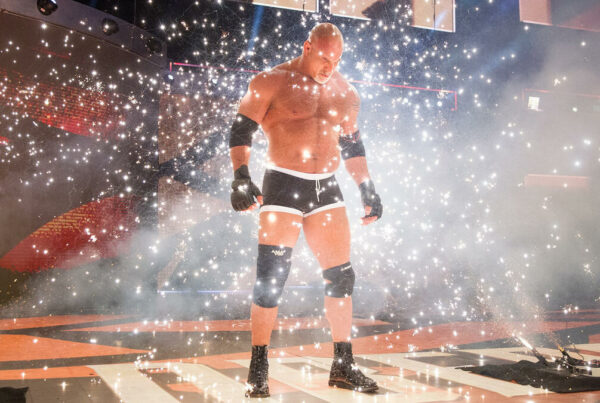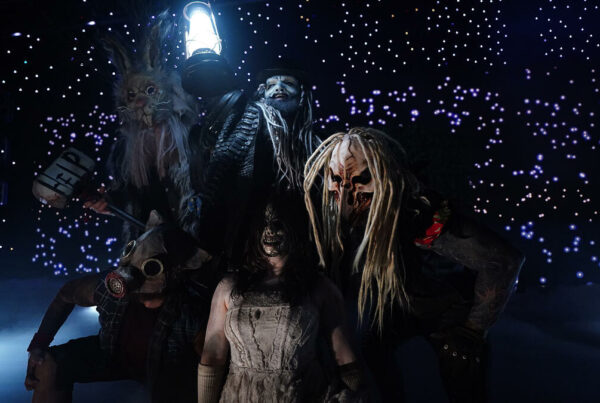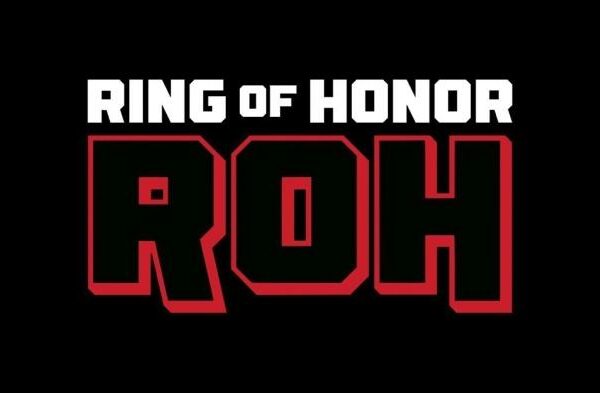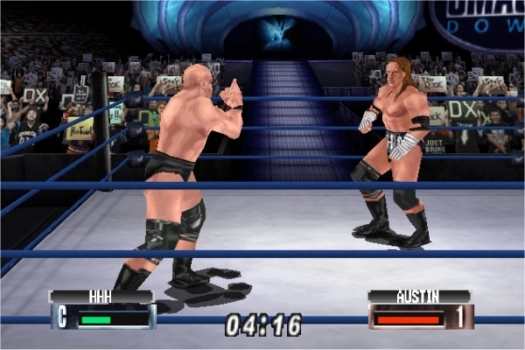
Twenty six years ago, I was eagerly picking up GamesMaster Magazine every month for updates on the impending release of Acclaim’s WWF Attitude on the original Playstation. There were full entrances now! First Blood and I Quit matches! Create your own show and stable! There were even rumours of backstage areas being accessible. I was 10 years old and this game was consuming more of my life than was healthy for a lad who hadn’t even started secondary school yet.
The game’s release being delayed twice almost caused me to shatter my copy of WWF Warzone into a thousand shards (I did not realise at the time that the delay was in fact due to the untimely and extremely tragic passing of Owen Hart). I extrapolated every sinew of information GamesMaster leaked onto their pages, no matter how minute, and endeavoured to envisage what the game would look like and how each match type would feel as an experience.
More than a quarter of a century removed from the halcyon days of the Attitude Era, as a fully grown adult man who has experienced the full gamut of video game evolution (with a fair amount also passing me by through marriage and fatherhood), I can look back and realise that WWF Attitude was, in reality, probably a pretty limited video game overall. Not that hindsight is enough to dampen the nostalgia soaked memories I have of losing endless hours to amassing every title in career mode and piecing together my perfect WrestleMania card.
Since 1999, WWE’s console-based output has shifted considerably in terms of scope and scale. From THQ’s takeover of the franchise at the turn of the century to 2K’s further evolution of the brand from 2013 onwards. Creation suites are now an immersive experience that will have you agonising over everything, from which submission hold is a suitable signature move for your fictional superstar to the texture and shade of their boot tassles. You can now helm the entire WWE Universe, booking storyline arcs to your every whim, while downloadable content packs keep refreshing the roster and showcase modes allow you to revisit and reshape pro wrestling history.
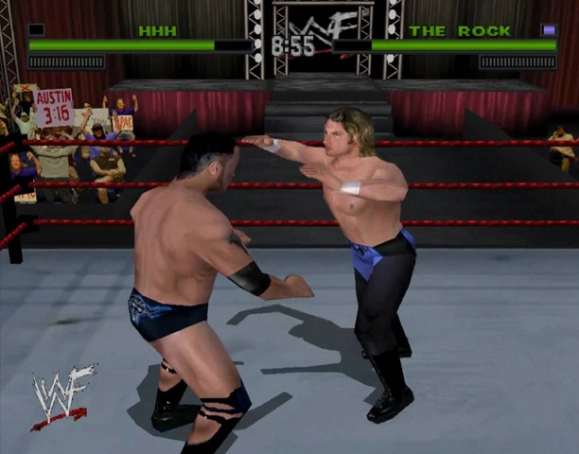
Image: Acclaim
Each era of game is significant to its own time and context, especially when you consider the technological advancements in gaming over the last 25 years. So to compare WWF Warzone and Attitude to WWE 2K25 is a pretty redundant level of discourse. But with such a stacked roster of titles to pore over, and with WWE 2K25 freshly released this month, what better time to compile a faction of the greatest wrestling video games of all time?
So, in no particular order, here we go…
WCW/nWO Revenge (THQ, 1998)
So, yeah, not even going to tee off with a WWF/E title, after all that Attitude talk. Instead, we’re heading to Atlanta for some good ol’ pixelated wrasslin’. Released at the peak of World Championship Wrestling’s late ’90s popularity, Revenge picked up where 1997’s World Tour left off and produced a game that perfectly matched the untethered excitement and unpredictability of WCW programming in this era. Everything is enhanced from the previous year’s World Tour, whether it be graphics, gameplay, entrances or championships. The AKI grappling system gave this era of WCW games a genuinely puroresu feel, while the addition of run-ins and a 60 deep roster of all-timers made Revenge as addictive as an actual episode of Monday Nitro around this time.
WWF SmackDown! 2: Know Your Role (THQ, 2000)
After switching to the other side of the Monday Night Wars and trading WCW for WWF at the back end of 1999, THQ wasted no time flooding the market with new releases. WWF WrestleMania 2000 dropped only a few weeks before the new millennium on the N64, before the inaugural SmackDown hit the PS1 just three months later, in March of 2000. Y2K had barely seen out its first year when WWF SmackDown! 2: Know Your Role took the world by storm, capping WWF’s then most profitable year in style with a title that rapidly became the best-selling combat sports game on a single format (PlayStation), shifting 3.2 million units. The Christmas season mode binges went crazy with this one. OK, so commentary and talent voice overs were not introduced yet, but just three months out from WrestleMania X-Seven and loaded with a heap of new features, improved graphics and sumptuous gameplay, KYR was a blistering phenomenon of a game.
Fire Pro Wrestling Returns (Spike, 2007)
THREE HUNDRED AND TWENTY SEVEN PLAYABALE CHARACTERS. That’s before the customisation options that are deeper than the Mariana Trench and the gameplay that hasn’t aged a bit in 20 years. Fire Pro Wrestling Returns is so much more than a cult classic. It’s a beast that has stood the test of time and serves as a benchmark for what a classic wrestling game should be. It has the arcade feel of a great beat ’em up, a rake of bombastic death matches, the intricate strategy of match maker mode and all your favourite stars from across Japan, Mexico and America, as well as legends and stars of MMA to choose from. A game you can revisit at any time and immediately lose two months of your life to.
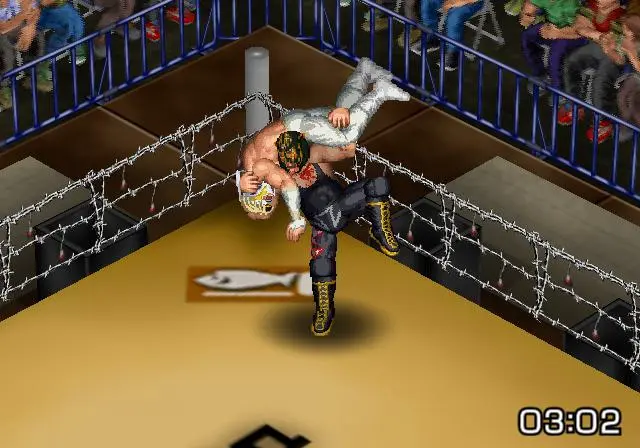
WWE Day of Reckoning 2 (THQ, 2005)
God bless THQ for giving the Gamecube a fond farewell. The cube bridged the gap between the N64 and the Wii more than admirably, even if commercially it didn’t fare anywhere near as well as expected. But what it lacked in unit sales (I mean, it still shifted over 20 million worldwide in its six year run. But that was also considered a major disappointment, so what do I know?) it more than made up for in quality titles. Two of which were the Day of Reckoning duo, released in 2004 and 2004, respectively. While both excellent efforts, I am going to err towards the sequel as it builds upon the momentum shifting realism of the original, while packing in new features like the blood loss related stamina depletion and also continues the story mode from the 2004 game, which is a nice touch of continuity. THQ were in a real groove on the cube and it’s a crying shame we never got to see how much further they could have taken the Day of Reckoning franchise and episodic story mode. An underrated gem.
WWE SmackDown!: Here Comes The Pain (THQ, 2003)
OK, so with over 20 years of hindsight, probably not a great idea introducing bra and panties matches to the virtual world. However, Elimination Chamber making its debut, legends being playable characters for the first time, The Rock and Steve Austin’s final appearance as non-legend characters, franchise first go-rounds for Batista, Rey Mysterio and John Cena and a revamped season mode with plenty of extra juice. A very worthy winner of the 2003 Spike Award for Best Fighting Game and a benchmark that has rarely been equalled or surpassed in the proceeding 22 years since it’s release.
WWE SmackDown! vs. Raw 2006 (THQ, 2005)
THQ were really in their bag in 2005, huh? Day of Reckoning 2 AND SD vs Raw 2006? SD vs Raw ’06 has been a fan favourite since its release and its myriad of virtues are regularly extoled by die hard fans who fondly remember it’s introduction of General Manager and create-an-entrance mode. The pre-match mini games were an unexpectedly welcome addition, as was the introduction of the Buried Alive match. This was a game that was not even close to being worn out, even by the time the ’07 version was on the shelves.
WWF No Mercy (THQ, 2000)
After piecing together WrestleMania 2000 in impressively rapid time in the second half of 1999, THQ delivered No Mercy a year later and ensured they would leave the N64 without ever dropping a dud. With two surefire winners in the form of WCW/nWo World Tour and Revenge, the aforementioned ‘Mania 2000 and then No Mercy, THQ were 4-0 on the 64-bit Nintendo, with No Mercy proving to be their crowning achievement, evolving AKI Corporation’s already sterling work even further. Casting an eye over those blocky graphics almost 25 years later, the game still somehow feels vital. Its devoted following is proof of that, with WWE fans constantly calling for a modern day version to be released, same gameplay and all. A game that perfectly encapsulated the era it was created to replicate.
WWE ’12 (THQ, 2011)
THQ and Yuke’s made the jump to seventh generation consoles in style with a refreshed franchise. Keeping things simple with the name change, the developers brought forth a geniusly cornball WWE vs WCW storyline as part of the Road To WrestleMania mode. The Kevin Nash-heavy cutscenes are tremendously fun, as is the sight of WCW sets within a WWE game and a quite berserk Hell In A Cell finale. The unfortunately named ‘predator technology’ was utilised for more realistic renders of WWE superstars and served as a significant evolution for the franchise, although it wouldn’t be long for this world, with 2K’s inheritance of the brand right around the corner. While this wasn’t quite a swansong, it was a strong enough title to go out on. And then some.
WWE 2K14 (2K, 2013)
2K’s first solo foray into the WWE series was a resounding success. With Yuke’s still on board, the transition from THQ was not just seamless, but one that kept us reliably sports entertained. While not a million miles away from what we received with WWE ’13, 2K’s proper singles debut is also a marked improvement on an already impressive instalment. With the 30 Years of WrestleMania and The Streak modes, there were countless hours of replays to be had. Creation suites, across both superstars and championships, was enhanced massively and thus so was the overall enjoyment of the game. The overhauling of Universe mode was also a welcome relief. 2K would encounter some problems with later entries, most noticeably around the 2020 mark, but their opening match wasn’t far off Rey Mysterio vs Kurt Angle at SummerSlam 2002 levels.
WWE 2K25 (2K, 2025)
OK, so you may call recency bias on this. OK, The Island mode isn’t up to much either. But 2K’s latest effort proves just how far they have come since the debacle in 2020. Every year since they have built upon the franchise with more determination to make it an immersive, cinematic experience. And with Paul Heyman and The Bloodline saga anchoring this year’s game, there’s an abundance of cinema to go round. MyRise Mutiny is a heap of a good time, the Bloodline Showcase begins with you being tasked to destroy Hulk Hogan with Yokozuna and there is an industrial amount of Paul Heyman cutting promos throughout. What’s not to love? Well, maybe that Island mode, but here’s hoping the multiple glaring wrinkles are well and truly ironed out of that by next year.
WWF Attitude (Acclaim, 1999)
Well I could hardly write a love letter to it and not include the game itself, could I? While there are absolutely several WCW games I could have included ahead of Attitude, it was the first wrestling game I remember being obsessed over. I had caught the tail end of the Warzone hype and had pretty solidly been an ISS Pro, Crash Bandicoot, Golden Axe, Streets of Rage and Super Mario fanatic before then. But Attitude was the exclamation point on my 10/11-year-old WWF fandom. It gave me the ability to play out my wildest sports entertainment dreams, even if my created character looked absolutely nothing like me and in fact more resembled the Ultimate Warrior with the flu. I took my guy to the pinnacle of the World Wrestling Federation, slicing down my heroes and enemies in the process.
The disc ran raw in my Playstation after being spun until the early hours of many a Saturday and Sunday morning. Realism, gameplay and career mode development may be far more highly evolved and playable in countless game since, but there may not be a game that possesses the same warmth for me that WWF Attitude does. A bigger ’90s triumph than Britpop and Four Weddings put together.

